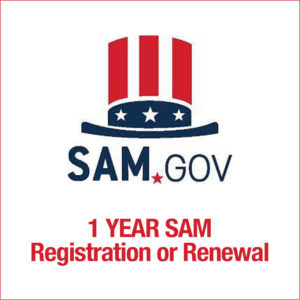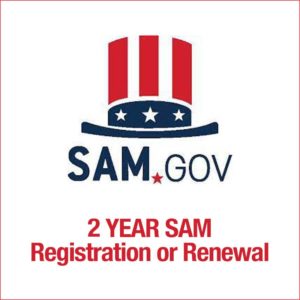Wondering how to obtain minority owned business certification California? This guide will walk you through the benefits, eligibility criteria, and the step-by-step application process. Find out how certification can boost your business opportunities and help you succeed.
Key Takeaways
-
Minority Business Enterprise (MBE) certification in California requires at least 51% ownership by minority individuals and provides significant financial and networking advantages.
-
Certified MBEs benefit from a 5% bid preference on state contracts and access to resources for training, funding, and advocacy at both regional and national levels.
-
The application process for MBE certification involves submitting a notarized application with relevant documents, including ownership proof and financial statements, and typically takes 45 to 60 days for approval.
Understanding Minority Owned Business Certification

A Minority Business Enterprise (MBE) in California is defined as a business that is at least 51% owned and controlled by minority individuals.
Qualified businesses are those that meet specific certification criteria based on ownership and management demographics, including women, minorities, LGBT individuals, and persons with disabilities.
Recognized minority groups include:
-
Asian
-
African American
-
Hispanic
-
Native American individuals
This certification helps minority-owned small businesses compete more effectively.
The National Minority Supplier Development Council (NMSDC) offers MBE Certification. It is considered the gold standard for ethnic minority business certification in the U.S. Widely accepted by procurement professionals in the private sector, universities, and hospitals, this national certification becomes a valuable asset for minority-owned businesses, especially for those seeking nmsdc certification.
Minority-owned businesses face significant challenges, such as being less likely to receive financing and only receiving half of what other businesses get from lenders and investors. These challenges hinder the sustainability and growth of minority businesses, but MBE certification opens doors to funding sources like business loans, investment capital, and special grants. Certified MBEs can also benefit from tax relief in specific locations and qualify for tax credits.
Beyond financial benefits, MBE certification grants access to private and government grants and contracts. The NMSDC network provides certified MBEs with basic support services, making the certification a comprehensive package for minority-owned small businesses.
Benefits of MBE Certification in California

Being an MBE certified business in California comes with numerous advantages. Certified small businesses enjoy a 5 percent bid preference on relevant state solicitations, providing a competitive edge. Additionally, certified MBEs are part of the state’s goal to allocate 25 percent of contract dollars to small businesses, offering significant revenue growth opportunities.
Another major benefit is access to resources and networking opportunities. They can participate in technical training seminars by major corporations, gaining valuable insights into procurement processes. The Employment Training Panel in California offers funding to help small businesses enhance worker skills through training programs. The California Office of Small Business Advocate offers resources to help small businesses, including minority-owned ones, access capital and navigate regulations.
Advocacy and recognition opportunities also play a crucial role. Advocacy efforts included in MBE certification support ethnic minority-owned businesses at regional and national levels. Certified MBEs can participate in prestigious awards recognizing supplier excellence at local, regional, and national levels. The MBE network membership facilitates private networking events, leading to business opportunities and partnerships.
Types of Minority Business Certifications
Minority business certifications are designed to provide opportunities for minority-owned businesses to participate in government and corporate contracting. There are several types of minority business certifications, each offering unique advantages:
-
Minority Business Enterprise (MBE) Certification: Offered by the National Minority Supplier Development Council (NMSDC), this certification is widely recognized by government agencies and corporations. It helps minority-owned businesses gain access to a network of corporate members who are committed to supplier diversity.
-
Small Business Administration (SBA) 8(a) Business Development Program: This program provides business development assistance to small, disadvantaged businesses. It includes mentorship, training, and access to government contracting opportunities, helping minority-owned businesses grow and compete in the marketplace.
-
Disadvantaged Business Enterprise (DBE) Certification: Offered by the U.S. Department of Transportation, this certification is designed to provide opportunities for small, disadvantaged businesses to participate in transportation-related contracting. It ensures that minority-owned businesses have a fair chance to compete for federally funded transportation projects.
-
Minority-Owned Business Enterprise (MOBE) Certification: Some state and local governments offer this certification to provide opportunities for minority-owned businesses to participate in government contracting. It helps these businesses gain visibility and access to local government contracts, fostering economic development within the community.
Each of these certifications plays a crucial role in supporting minority-owned businesses, enhancing their visibility, and providing access to valuable business opportunities.
Eligibility Criteria for MBE Certification
Several criteria must be met to become an MBE certified business. The business must be for-profit and at least 51% owned, managed, and controlled by ethnic minority individuals. The principal decision-maker of the business must be a minority individual.
Qualified businesses must meet the criteria outlined in General Order (GO) 156, which includes 51% ownership and control by designated groups such as minorities, women, LGBT individuals, and persons with disabilities.
Applicants need to provide proof of ownership, management, and control by minority individuals. This involves submitting ownership documents like articles of incorporation and operating agreements. Eligible applicants must be a united states citizen or legal aliens, and the business must operate in the U.S. or its trust territories.
Entities such as companies, corporations, partnerships, sole proprietorships, or franchises can apply for certification. Financial statements like profit and loss statements are often required to demonstrate financial health. Confirming eligibility is vital before proceeding with the MBE application process.
Financial Benefits and Incentives for Minority Owned Small Businesses
Minority-owned small businesses may be eligible for a variety of financial benefits and incentives that can significantly enhance their growth and sustainability. These benefits include:
-
Government Contracts: Minority-owned small businesses can participate in government contracting opportunities, including contracts set aside specifically for small, disadvantaged businesses. These contracts provide a steady stream of revenue and help businesses build a strong portfolio of government clients.
-
Grants and Loans: Various government agencies and non-profit organizations offer grants and loans to minority-owned small businesses. These financial resources can be used for business expansion, equipment purchases, and other critical needs, providing a financial boost without the burden of high-interest loans.
-
Tax Incentives: Programs like the New Markets Tax Credit offer tax incentives to minority-owned small businesses. These incentives can reduce the overall tax burden, freeing up capital for reinvestment in the business.
-
Business Development Assistance: Organizations such as the Small Business Administration (SBA) provide training, counseling, and other forms of business development assistance. These resources help minority-owned small businesses improve their operations, enhance their competitiveness, and achieve long-term success.
-
Access to Capital: Programs like the Minority Business Development Agency’s (MBDA) loan program offer minority-owned small businesses access to capital. This access is crucial for funding growth initiatives, managing cash flow, and seizing new business opportunities.
It’s important to note that these benefits and incentives may have specific eligibility requirements and application processes. Not all minority-owned small businesses may qualify, so it’s essential to review the criteria carefully and prepare the necessary documentation to take full advantage of these opportunities.
Steps to Apply for MBE Certification

Applying for MBE certification in California is straightforward and free of charge. Adhering to specific guidelines outlined by the certifying body is necessary.
The process includes submitting a notarized application with all required documents to a designated clearinghouse.
Required Documents
Qualifying as a minority-owned business requires several documents. These include proof of citizenship, a driver’s license, and financial statements. Applicants usually need to provide ownership documents like articles of incorporation and operating agreements.
Submit complete federal tax returns for the last three years, including all pages, forms, schedules, and statements. IRS verification of the business’s tax identification number is also required.
For businesses with employees, quarterly wage reports for the last four completed quarters must be submitted. Timely submission of all requested documents is crucial for a smooth application process.
Application Submission
Submit the application for MBE certification through the Supplier Clearinghouse website. Review the completed application for accuracy before submission to avoid any delays.
Site Visit
A site visit, which is mandatory, is conducted with the ethnic minority owner(s). The visit verifies the details in the application and confirms the business’s minority status.
The site visit involves verifying the business’s operational status and ensuring compliance with MBE requirements. It may include an interview with the business owner to assess operations and ownership structure.
Verification and Approval Process

After submission, the Certification Committee reviews the application and makes recommendations for approval or denial. Applications submitted by the 21st are reviewed by the end of the month.
In the first week after the site visit, the Board of Directors reviews the MBE certification applications. The site visit verifies the details in the application and confirms the business’s minority status. This includes verifying the operational status of the business and ensuring compliance with MBE requirements.
The certification process usually takes 45 to 60 days, with possible extensions up to 90 days. Expedited applications are reviewed by the next business day. Applicants must provide a complete application and respond promptly to avoid delays.
Recertification Process
Certification in California is typically valid for three years, with the process often taking around 45 days. The recertification fee varies by annual revenue, ranging from $250 to $900.
Recertification usually takes 45 to 90 days, depending on application completeness and responsiveness. Recertification applications can be expedited, with same-day reviews for submissions before 3 PM.
Additional Resources for Minority Owned Businesses

California provides state-specific programs like the Utility Supplier Diversity Program and Southern California Minority Supplier Development Council. These programs offer partnership opportunities, legal guidance, and workforce development support for minority-owned businesses.
For new applicants unsure about the certification process, a live pre-certification briefing and written information are available. These resources aid in understanding the certification process and preparing the necessary documents.
Minority-owned businesses can also benefit from various resources aimed at economic development and supplier diversity. These resources provide access to business opportunities, regulatory compliance guidance, and support for growth and expansion.
Summary
In summary, obtaining MBE certification in California can open numerous doors for minority-owned businesses. The certification process, while detailed, is straightforward and provides significant benefits, including access to contracts, funding, and networking opportunities.
We encourage all eligible minority-owned businesses to consider pursuing MBE certification to unlock their full potential. With the resources and support available, your business can thrive and contribute to a more diverse and inclusive economy.
Frequently Asked Questions
What is a Minority Business Enterprise (MBE)?
A Minority Business Enterprise (MBE) is defined as a business that is at least 51% owned and controlled by individuals from recognized minority groups, such as Asian, African American, Hispanic, or Native American backgrounds. This designation fosters economic inclusion and support for diverse business ownership.
What are the benefits of MBE certification in California?
MBE certification in California offers access to funding, contracts, technical training, networking opportunities, and advocacy support, significantly enhancing business growth and opportunities. This certification can play a crucial role in fostering a competitive advantage in the marketplace.
What are the eligibility criteria for MBE certification?
To qualify for MBE certification, a business must be for-profit, at least 51% owned, managed, and controlled by minority individuals, and based in the United States or its trust territories. Qualified businesses must meet specific certification criteria based on ownership and management demographics, including women, minorities, LGBT individuals, and persons with disabilities. Meeting these criteria is essential for obtaining certification.
What documents are required for the MBE application process?
The MBE application process requires proof of citizenship, ownership documents, financial statements, federal tax returns, and applicable quarterly wage reports. Ensuring you have these documents ready will facilitate a smoother application experience.
How long does the certification process take?
The certification process generally takes between 45 and 60 days, though it may extend up to 90 days in certain circumstances.





